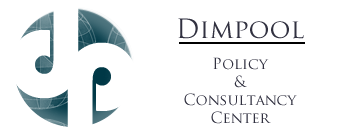THERE IS NO POWER LIKE HARD POWER
YORIKIRII
06 December 2011
(This article was first published at Yorikirii’s blog – in the mind of yorikirii)
[wpcol_1half id=”” class=”” style=””]
When Duke Ellington, the elder statesman of Jazz, left New York on September 6, 1963, he began one of the most eventful journeys of his long career. The next evening, he and his orchestra found themselves in Damascus, the first stop on a State Department tour that was to take them to Amman, Kabul, New Delhi, Ceylon, Tehran, Madras, Bombay, Baghdad and Ankara. Also in the itinerary were Istanbul, Nicosia, Cairo, Alexandria and Athens, but concerts in these cities were indefinitely postponed when the tragic news of President Kennedy’s assassination reached them in Ankara.
Duke Ellington was very impressed with what he saw on his trip half way around his world. “The smell, the vastness, the birds, and the exotic beauty of all these countries make a great inspiration”, he wrote back in March of 1964 in an article for a Jazz magazine.
The Duke’s tour to the East was captured in one of his greatest recordings, the Far East Suite, first released in 1967 and re-issued in 1995. The Far East Suite counts among the all time masterpieces of Jazz. It features gems like a prayer call from Syria called Amad, Isfahan – “the pearl of Persia, where everything is poetry” – and Mount Harissa, a serene and swinging ode to the huge statue of Our Lady of Lebanon which happens to overlook the apartment I own in Lebanon.
Sending Duke Ellington to the Middle East was an American exercise in soft power. First coined in 1990 by Harvard professor Joseph Nye, soft power describes the ability to obtain what you want through co-option and attraction rather than through coercion. The primary currencies of soft power, as Nye calls them, are an actor’s values, cultures, policies and institutions. In the case of the United States, soft power means Hollywood movies – North Korea’s Kim Jong-il is a fan – the Declaration of Independence – Kosovo’s nasty divorce from Serbia comes to mind – and the Jazz music of the likes of Duke Ellington.
Is soft power a concept that works? That works and is credible for the United States and the recipient of their power? I don’t think so. Soft power is a concept for countries that want to make a difference for themselves and the world without resorting to cruise missiles and boots on the ground, because they are too weak for this. Countries like Norway (anyone remembering the Oslo accords?), Qatar (yes, Qatar, the organizer of the 2022 FIFA World Cup) or the Netherlands which host the International Criminal Court in the Hague.
[/wpcol_1half] [wpcol_1half_end id=”” class=”” style=””]
When soft power is seen coming from the land of the world’s biggest army, one cannot help but see it as manipulative, as a cover up for the use of military technology with which the Unites States is pursuing and protecting its interests if necessary. The Soviet Union had a great deal of soft power in the years after World War II, but they destroyed it by the way they used their hard power against Hungary and Czechoslovakia. And since 1990 and Nye’s book, the United States has bombarded and occupied a quite many places Ellington visited in 1963. The sound of exploding rockets rings louder than the sound of Johnny Hodges’ exquisite saxophone charming up the poetry of Isfahan.

Now Anne Marie Slaughter, @SlaughterAM on Twitter, a professor at Princeton university who had made the FP list of the top 100 global thinkers last week, proposes another type of power in a recent article for the Atlantic. Slaughter calls this one “collaborative power” and defines it as “the power of many to do together what no one can do alone”. “Consider the power of water”, Anne Marie Slaughter goes on, “each drop is harmless; enough drops together create a tsunami that can level a landscape”. Professor Slaughter advocates her case with the example of columnist Mona Eltahawy who recently was arrested while protesting on Cairo’s Tahrir square, but then was released with a broken arm after social media’s little helpers started to use a #FreeMona hashtag that eventually trended on Twitter.
Did “collaborative power”, the combined use of the #FreeMona hashtag by people on Twitter, free Mona? I tend to believe that the fact that Mona Eltahawy is a US citizen helped far more in her case. @SlaughterAM was able to immediately contact people at her former working place, the State Department (do they still send Jazz bands on tour, by the way?) which in turn got the US embassy to follow the story into the Egyptian interior ministry. I don’t think that the generals at SCAF, the Egyptian junta, act on a topic trending on Twitter. As any actor in international relations, our men in Cairo only respond to two types of incentives – economic incentives and crude force. The United States got both – if only the debt crisis… – a thousand tweets got none.
There is the fabulous music of Duke Ellington. And there is hard power. Don’t count on anything else in between.
[/wpcol_1half_end]
Meanwhile the Syrian blogger Razan Ghazzawi has been arrested in Syria, being on her way to Jordan to attend a conference. 24 hours have passed with no news from Razan. As one activist put it on Twitter: “Razan was born in America. That could make a world of difference.” Which sound does resonate well in Bashar’s ear to set her free?
You might also want to read[srp srp_number_post_option=’5′ srp_widget_title=’ ‘ srp_thumbnail_wdg_height=’60’ srp_thumbnail_wdg_width=’60’ srp_include_option=’2881′ srp_thumbnail_option=’yes’ srp_content_post_option=’titleonly’] |
